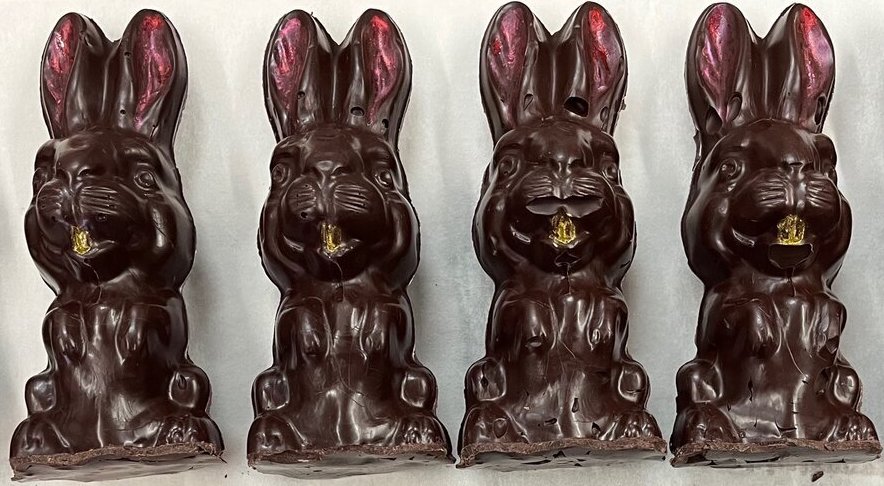The industrial corridor of West Berkeley has been a destination for bean-to-bar chocolate ever since small-batch cacao pioneer Scharffen Berger opened a factory there in 2001. Now, independent chocolatiers Tracey Britton and Eli Curtis of Bisou Chocolate are picking up where Scharffen Berger left off. If all goes according to plan, Bisou’s first brick-and-mortar shop will open on Ninth Street around May 15.
Up until now, Britton and Curtis exclusively sold their vegan and gluten-free chocolate curbside from a kitchen in West Oakland and at farmers’ markets in Mountain View, Walnut Creek and at Ferry Plaza in San Francisco.
Setting Bisou apart from other chocolate makers, Britton and Curtis use significantly less sugar, which creates a smoother taste. According to Curtis, their 100% Noir Bar is the true litmus test of Bisou’s European-style technique—with no added ingredients, the quality of the cacao has to stand on its own.
Curtis said Bisou’s name and art nouveau label is an homage to his and Britton’s Francophone origins. His mother hails from French Canada, while Britton is a French scholar. “Bisou” is the French word for “kiss,” which, according to Curtis, represents the labor of love their business has become.
As Curtis told The Standard, he and his wife began making chocolate in their Outer Sunset apartment 18 years ago. What began as an “extreme hobby” became a full-fledged wholesale business around 2012. Curtis said the farmers’ market circuit has been a major boon for Bisou as it’s given them the opportunity to speak directly to customers about the chocolaterie’s transparent practices.
Chocolate is a notoriously unethical, extractive industry—multinational makers like Nestlé and Cargill have been embroiled in enslaved child labor lawsuits for years now—and Curtis said he’s quick to get on a soapbox about those issues.
“Chocolate is worse than coffee in that way,” he said. “It’s comparable to clothing or metal. These opaque supply chains allow bad actors to really go to town.”
Because it’s impossible to mechanize the cocoa harvest, chocolate production relies on the arduous work of cacao farmers and laborers. Still, Curtis said he believes Bisou and other craft makers have an opportunity to transform the industry by working directly with farmers and paying everyone in the supply chain a fair price.
“Chocolate is not only tied to one of the oldest indigenous foodways of the Americas, but it also offers a chance to elevate some of the poorest laborers in the world,” he added.
At their new shop, Britton and Curtis plan to fill their counter with chocolate bars, bon bon, caramels and fruit-filled dragées. They’ll also serve cold brew cacao and hot drinking chocolate.
